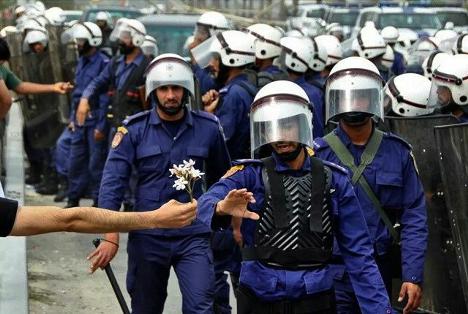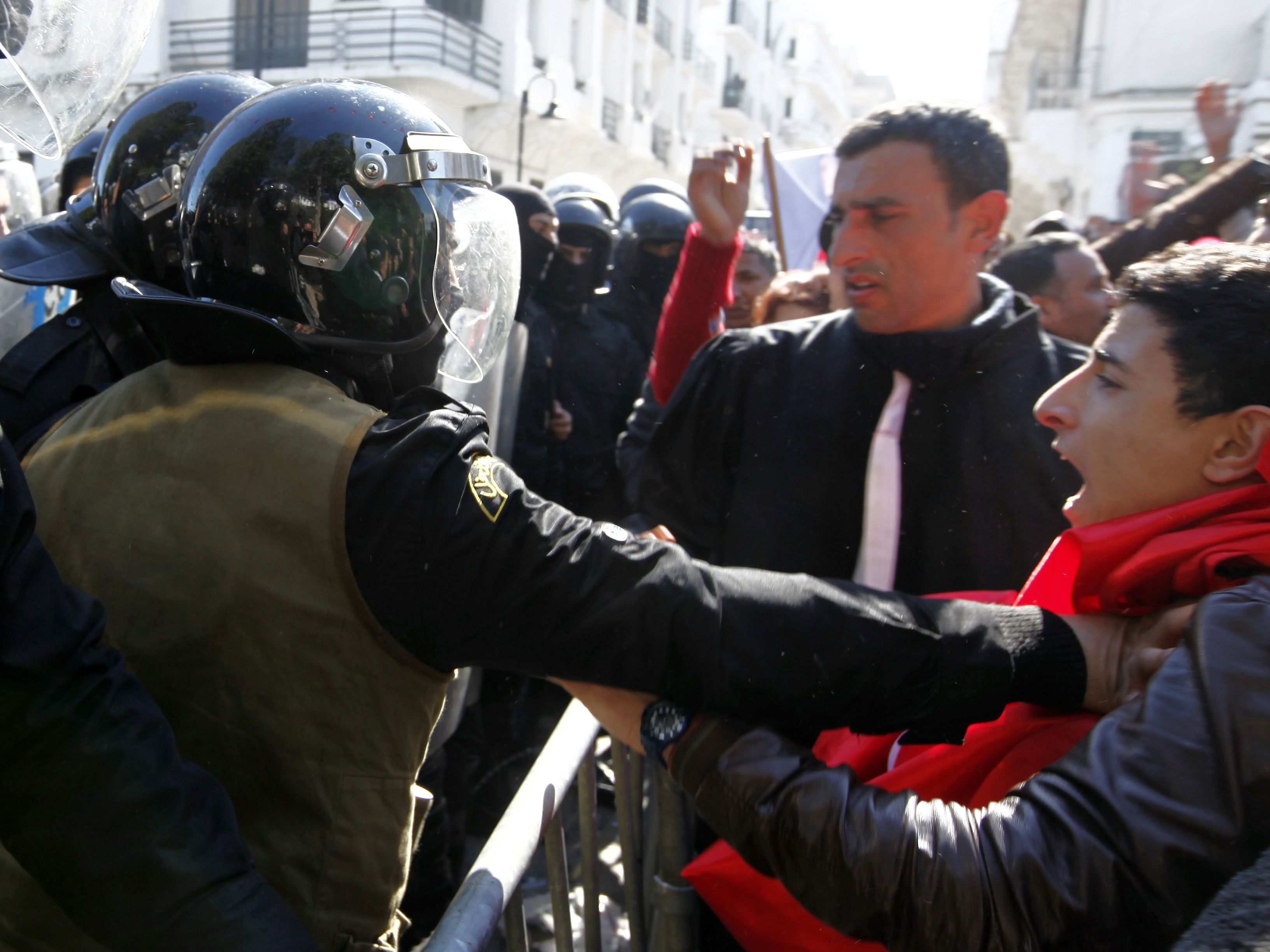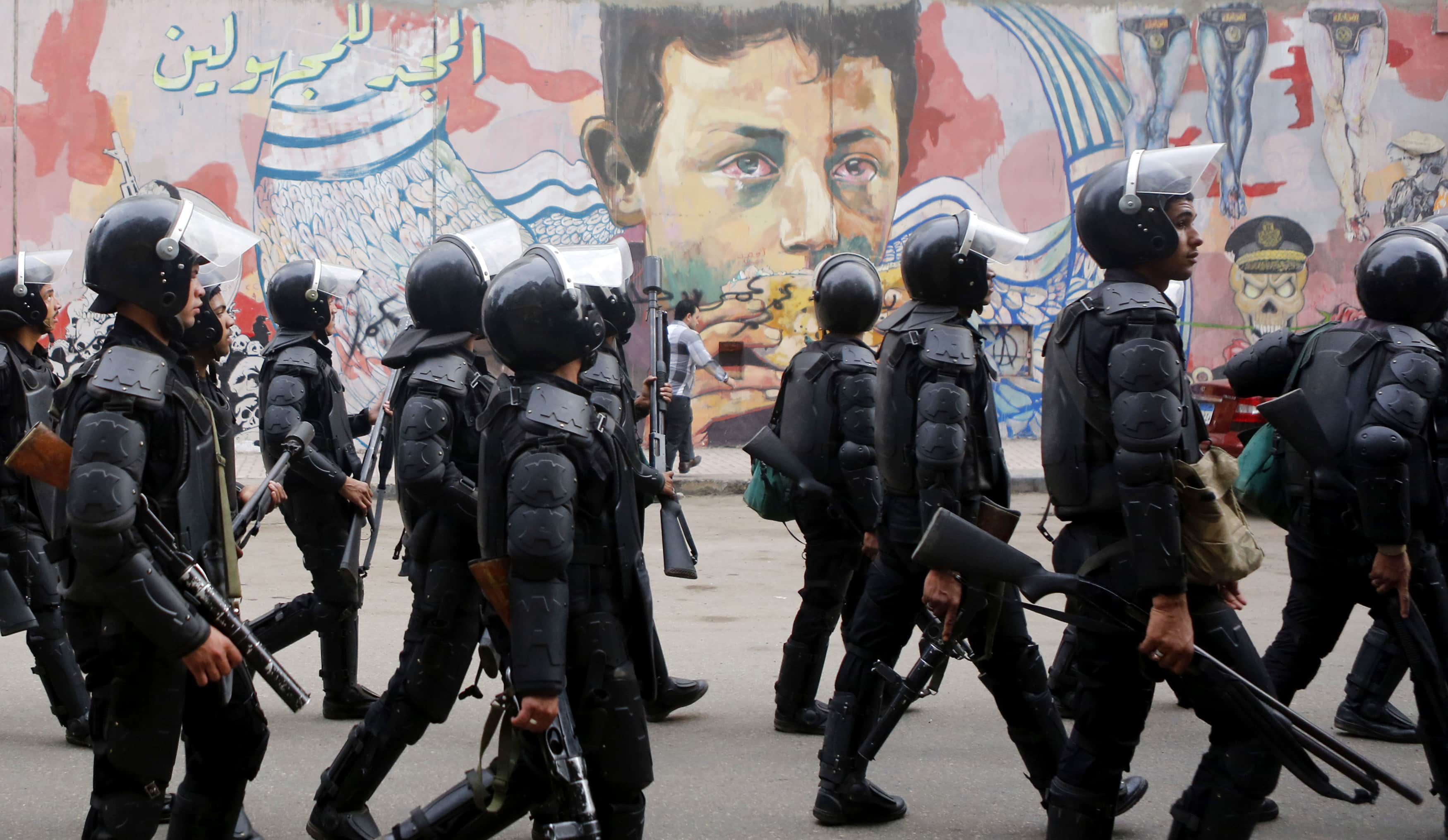In light of the rising threat of extremist groups such as ISIS, governments across the Middle East and North Africa are promising their citizens stability and security – but not without a price.
In Egypt, Sabreen Mangoud is still awaiting justice.
Her daughter, 26-year-old reporter Habiba Abd al-Aziz, was killed during the army’s brutal dispersal of a camp of Muslim Brotherhood supporters in August 2013. Mangoud is joined by the friends and families of over 1,150 Egyptians who died in five separate incidents of mass protester killings since the ouster of former president Mohamed Morsi. It has been more than a year since the dispersals took place and not a single police officer or military official has been held accountable for the intentional use of excessive force.
In Bahrain, where people have been taking to the streets every night for the past four years, a police officer who shoots and kills an unarmed protester at close range or beats and tortures a detainee to death might face a sentence of six months, or maybe two years. Peacefully expressing your opposition to the status quo, on the other hand, can get you life in prison.
In Tunisia, one of the biggest obstacles to a successful democratic transition is a security sector that still behaves pretty much the same way it used to during former president Ben Ali’s 23 years of authoritarian rule. Time and again since the revolution, police officers have used brutal force against peaceful protesters.
The common thread to these events: all violations were committed in the name of national security.
Threat of terror as an excuse for the clampdown on rights
Governments in the region have been treating their citizens as threats to national security for decades now, with near total impunity. What the Arab uprisings of 2011 offered was an opportunity to hold the perpetrators accountable and to reform security sectors across the region. Instead, a power vacuum has given rise to such terrorist groups as ISIS, Al-Nusra Front in Syria, and the Sinai-based Ansar Beit al-Maqdis.
The threat from these groups is real, but countermeasures taken by governments in the Middle East and North Africa seem to have been aimed at dissidents and activists instead. They are using the threat of terrorism to infringe on their citizens’ rights, with few if any consequences. And citizens, save for those who still dare to dream of “bread, freedom, and social justice”, have backed them up, believing that it is the only way to achieve security and stability. But there are those who question the extent to which the use of force and the repression of peaceful resistance are effective tools to counter terrorism.
“It is a government’s responsibility to provide security and stability,” said Rawda Ahmed, a human rights lawyer and deputy executive director at the Arab Network for Human Rights Information, pointing out that a citizen should not be expected to forgo his rights or to exchange her political freedoms for the promise of safety.
As Maha Yahya, from the Middle East Centre at global think tank Carnegie, told euronews in July, “the expanding clampdown on fundamental rights overlooks the fact that security and stability cannot be attained in the absence of freedom.”
Human rights defenders treated as “traitors and spies”
Given how state-sponsored and private media in Egypt have been touting the government line, it’s not surprising when the general public believe that only their generals stand between them and the jihadists, and that the only way to stop violence is with more violence.
In some ways, this has made the work of civil society groups even more difficult than during Hosni Mubarak’s 30-year rule. “After the [2011] revolution, people used to look up to us,” said Ahmed when asked about her work as a rights lawyer in Egypt under President Abdel Fattah el-Sisi. “Now, we’re being portrayed in the media as traitors and spies.”
The vilification of civil society in Egypt and elsewhere in the region has meant that human rights groups have had to focus on the fight for their own existence.
Meanwhile, impunity continues to thrive: On 29 November 2014, Mubarak and his aides were acquitted of all charges of conspiring in the killing of more than 846 protesters during the three-week long uprising that unseated him. Habiba Abdel Aziz’s mother and the relatives of others killed by security forces during and after Mohammed Morsi’s ouster continue to wait for justice.
In Bahrain, a high-ranking security official accused of torture – and later acquitted by a judiciary that is neither independent nor fair – is thanked by the Prime Minister for his “work” and “patience”.
And in Tunisia, the killers of opposition leaders Chokri Belaid and Mohamed Brahmi (widely thought to have been assassinated at the hands of religious extremists) remain at large and unchallenged by the Tunisian judicial system.
Crackdown encouraging instability, not ending it
And the promise by authorities that giving up freedom will result in safety? Ironically, continuing impunity and the crackdown on human rights and civil society organisations by oppressive political regimes is at least one factor in encouraging extremist responses and perpetuating instability. In his piece for Daily News Egypt entitled ‘We’re losing the war on terror‘, independent journalist and blogger Wael Eskandar wrote, “Every day injustice is not deterred, or is inflicted by the state, the context becomes more conducive to radicalised reactions.”
In the end, restricting rights creates more wrongs.

A peaceful protester offers a police officer a flower during a demonstration on 13 March 2011 in Bahrain Ammar Abdulrasool / http://instagram.com/aarali

Tunisian protesters clash with riot police during a demonstration after the death of Tunisian opposition leader Chokri Belaid, outside the Interior ministry in Tunis on 6 February 2013 REUTERS/Anis Mili
Hiba Zayadin is the IFEX Section Editor for the Middle East and North Africa.
